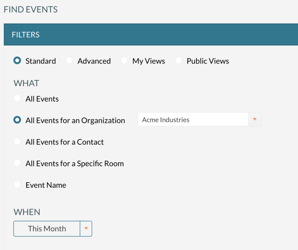The way events are conducted has changed in many ways over the years. For example, previously in-person meetings can now be held as remote sessions or hybrid meetings. One thing that hasn’t changed, however, is the importance of getting feedback from attendees after a gathering. In fact, as we all adjust to new ways of doing things, finding out what participants thought of a session is more critical than ever.
Another thing that hasn’t changed is the fact that people typically aren’t eager to complete surveys. Consequently, it’s important to be familiar with best practices for developing and sending them.
10 Tips for Getting the Input You’re Looking for After an Event
Adhering to the following ten guidelines can help you get more valuable feedback from more meeting attendees:
- Send the survey invitation promptly. People are more likely to complete a survey if they receive the request no more than 24-48 hours after the event. Plus, the feedback you get is likely to be more detailed and accurate the sooner it is provided.
- Segment your survey by audience type. The information you want from stakeholders will vary based on how they’re associated with the event. For example, you should ask different questions of general attendees, VIP attendees, speakers, vendors, etc.
- Include a friendly message that thanks the attendee and explains your goals. A blunt directive like, “Please complete this survey about the event you recently attended.” won’t get the same kind of response as a message that says, “We hope you enjoyed the event you recently attended at our facility or online. To help us better serve future attendees, we’d greatly appreciate your feedback about the event. Thank you in advance for taking a few minutes to share your thoughts.”
- Write questions that are clear and concise. Wordy, convoluted sentences will quickly frustrate your audience and hurt your response rate.
- Include a question looking for an overall impression of the event. Asking attendees to rate their event from 1-10, for example, gives your team a quick way to find returned surveys that need attention. If 10 is the high score and someone gives the gathering a 2, you’ll want to look into that right away.
- Vary the question types in the survey. A mix of questions with multiple choice, Yes/No, and free-form text answers can help keep a respondent interested and engaged.
- Keep the number of questions around 10. Too few questions and you may not get the information you need. Too many questions and people may not complete the survey or even start it.
- Avoid leading questions. “How much did you enjoy the event?” creates pressure to respond in the affirmative, even if the person really didn’t enjoy the event at all! “How would you rate the event?” is a question that doesn’t have any associated assumptions.
- Include both general and customized questions. It’s helpful to have some questions that remain consistent over time, as they can enable you to spot trends related to your facility, the services you provide, etc. But your need for information will likely change based on your circumstances. For example, if you’re planning to renovate a room or building, you may want to ask attendees more questions about the space as the design phase approaches.
- Consider how you will report on the survey. Charts and graphs are a great way to communicate information quickly and clearly. However, you need the right type of data (typically numeric) to create them.
Common Post-Event Survey Questions
The survey questions you ask will vary based on the information you need. However, some of the more common questions include things like:
- How did you learn about this event?
- How would you characterize the information you received on registering for and attending the event?
- What was your overall impression of the event space?
- What was your overall impression of the services you received?
- If you interacted with our staff, what was your overall impression of those interactions?
- Was there anything that could have improved your experience?
- Based on your experience, would you consider hosting an event at our facility in the future?
- Do you have any questions or comments for us?
The More You Know…
Whether you’re looking to grow the number of events you host or increase funding for your scheduling department, the typical attendee experience will likely be a factor. Getting honest feedback from attendees is the best way to improve that experience and achieve your objectives.



